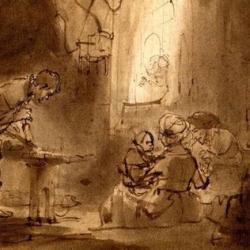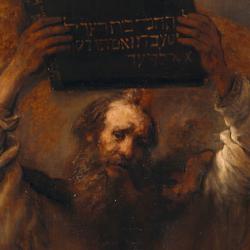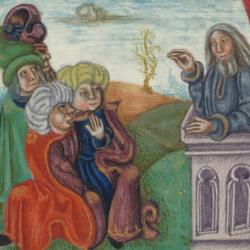Reading the biblical account of the exodus, we think of it as a local conflict between Egypt and Israel, Yahweh v. Pharaoh and his gods. It was not. It was Yahweh’s massive intervention in the ancient world, and remade the whole religio-political landscape.
So argues Egyptologist Jan Assmann ( Moses the Egyptian: The Memory of Egypt in Western Monotheism ). Assmann is no fan of monotheism, which, in his mind, breeds intolerance and violence. But he sees the decisive character of the exodus in making what he calls the “Mosaic distinction” between true and false religion: “Books 2 and 5 of the Pentateuch unfold the distinction in a narrative and in a normative form. Narratively, the distinction is represented by the story of Israel’s Exodus out of Egypt. Egypt thereby came to symbolize the rejected, the religiously wrong, the ‘pagan.’ As a consequence, Egypt’s most conspicuous practice, the worship of images, came to be regarded as the greatest sin. Normatively, the distinction is expressed in a law code which conforms with the narrative in giving the prohibition of ‘idolatry’ first priority. In the space that is constructed by the Mosaic distinction, the worship of images came to be regarded as the absolute horror, falsehold, and apostasy. Polytheism and idolatry were seen as the same form of religious error.”
The social and political extraction of Israel, in short, cut a chasm in the religious imagination of antiquity.










